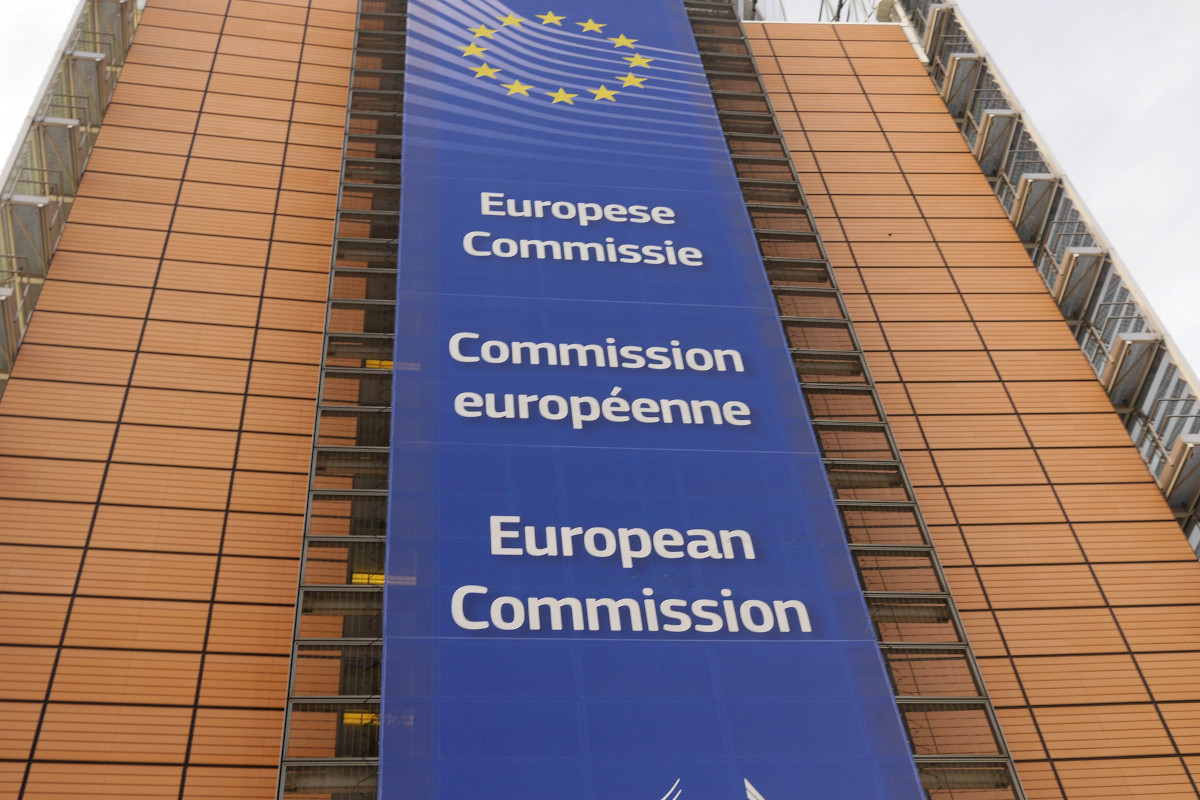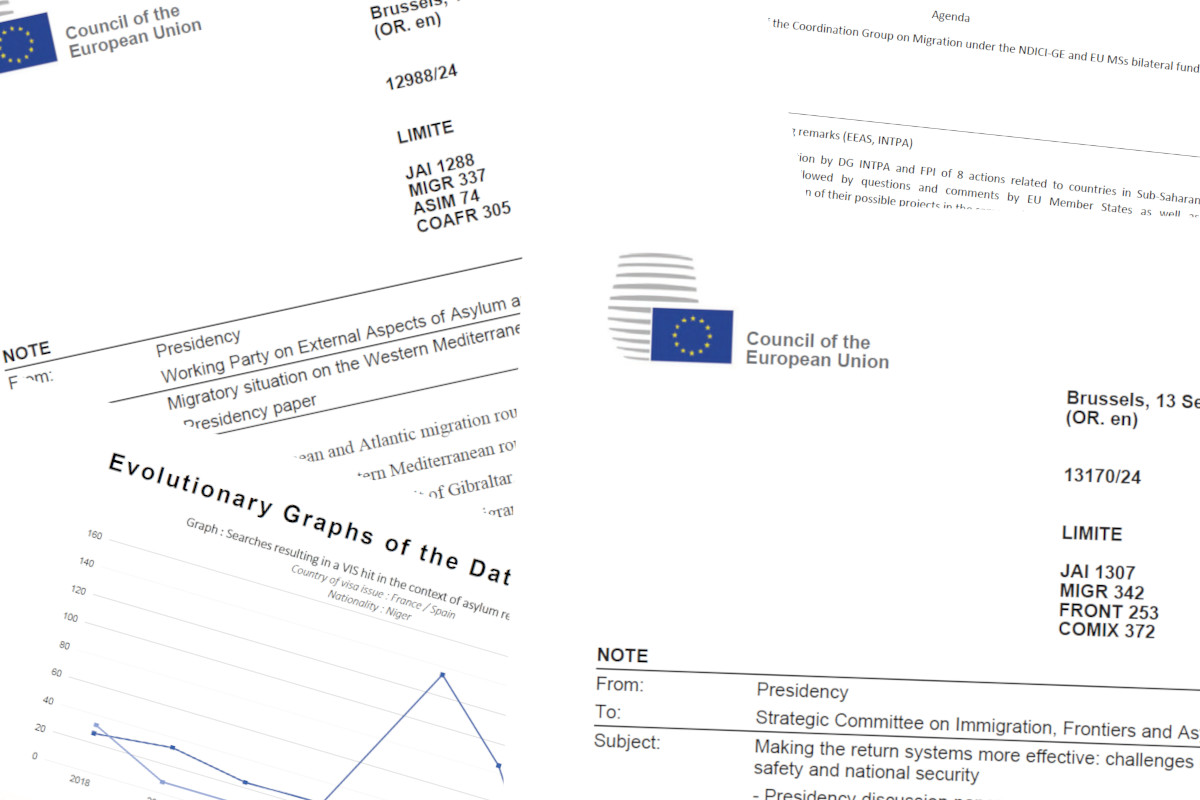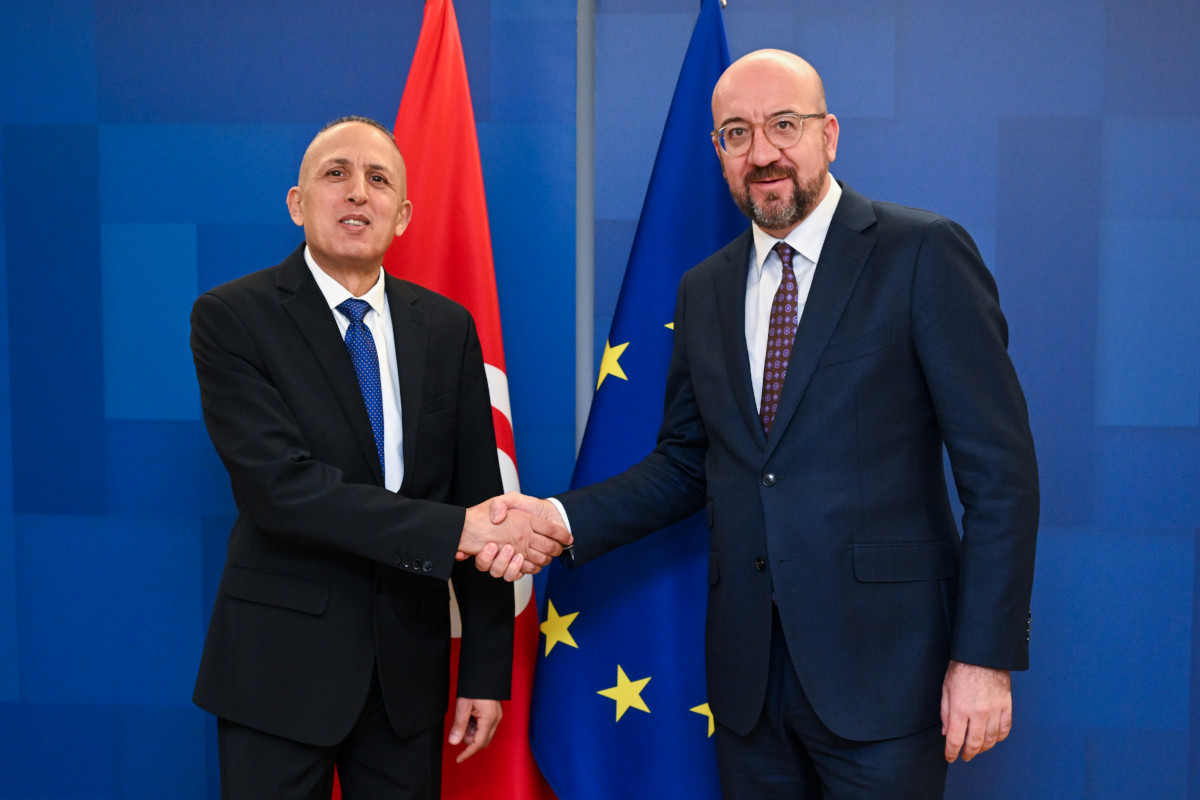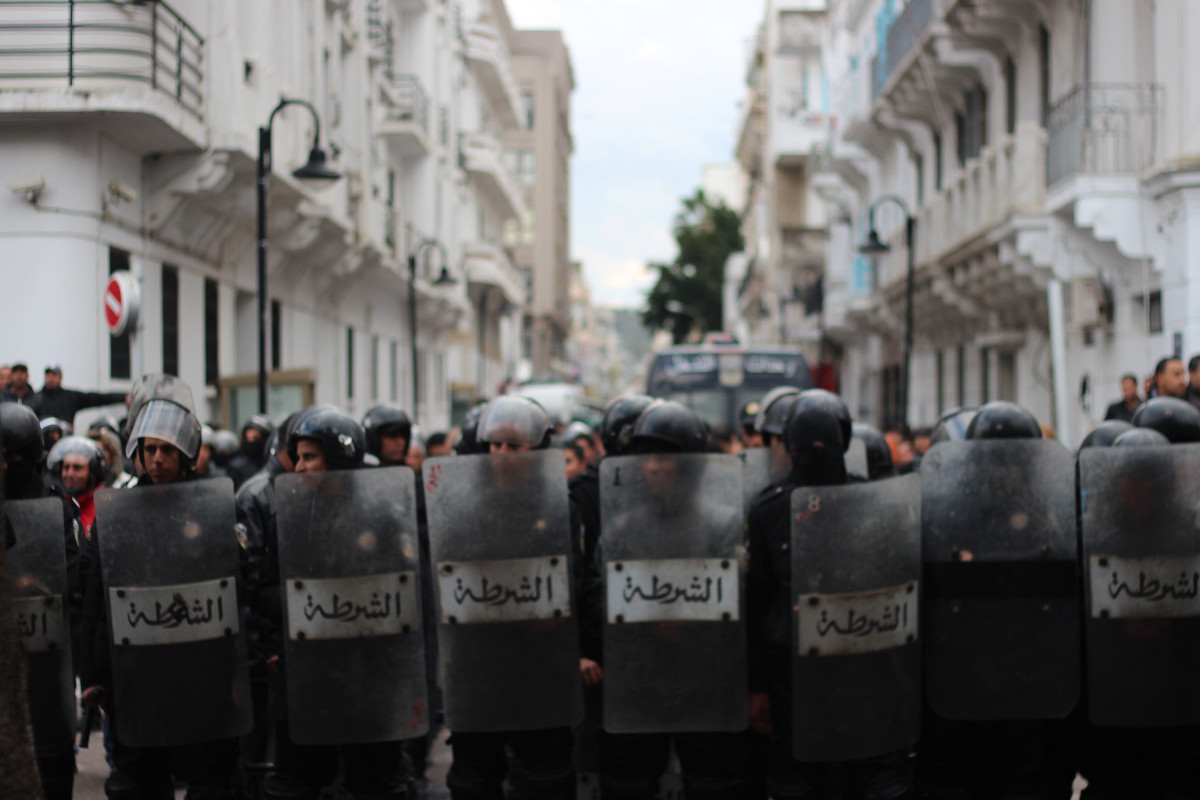Migration policy priorities of the next European Commission: a jargon-free translation
Topic
Country/Region
08 November 2024
This week, the proposed new European Commissioners are being interviewed by the European Parliament. Four of the 26 “mission letters” sent to the nominees by Ursula von der Leyen set out responsibilities with regard to migration, asylum and border policy. Couched in typical EU jargon, the texts hide a brutal and violent reality. Aside from the implementation of the Pact on Asylum and Migration, key topics in the coming months and years will include a new deportation law; attempts to set up deportation camps (“return hubs”) in non-EU states; new “partnerships” with non-EU states to try to control migration; and increased police powers.
Support our work: become a Friend of Statewatch from as little as £1/€1 per month.

Unless otherwise indicated, all the quotes below are taken from the "mission letters" sent to the proposed new Commissioners, available at the end of this article.
Henna Virkkunen, Executive Vice-president for Tech Sovereignty, Security and Democracy
“It will also be crucial to continue working with a fair and firm approach on migration, implementing the Pact on Asylum and Migration working with Member States and EU agencies to turn legal commitments into action and completing the work where necessary.”
The reference to “completing the work” is likely to refer, at least in part, to the ongoing plan to reform the Return Directive. Negotiations on a revamped Directive have been stalled for several years. Member states are planning to get a new version of the law passed, with even more stringent measures.
It remains to be seen whether Virkkunen will be able to oversee the “completion” of the Pact on Asylum and Migration. Since its approval, numerous member states have demanded the introduction of even stricter measures, effectively undermining the new laws before they have even been implemented.
Dubravka Šuica, Commissioner for the Mediterranean
“Working with the High Representative/Vice-President you will lead the work on the New Pact for the Mediterranean. This should work on building comprehensive partnerships focused on investment, economic stability, jobs, energy, transport, security, migration and other areas of mutual interest.”
This is a call to continue the kind of deals struck with Egypt and Tunisia in recent years, with billions in public funding from the EU going to economic and social “reforms,” alongside substantial funds for migration and border control operations.
“'You will ensure these comprehensive partnerships operationalise the external aspects of our migration policy, notably covering border controls and the fight against smugglers, in respect of human rights.”
As any observer should by now know, respecting human rights in migration “partnerships” is not at the top of the EU’s agenda. There is little reason to expect that to change. A recent article in The Guardian revealed the latest in a long line of horrific abuses that come as part of these deals:
“…the EU is funding security forces committing widespread sexual violence against vulnerable women, the most egregious allegations yet to taint last year’s contentious agreement between Brussels and Tunis to prevent migrants reaching Europe.”
A “non-paper” (pdf) obtained by Statewatch indicates that there is substantial political backing for closer cooperation with southern Mediterranean states.
Dated 30 September and “co-sponsored” by Germany, Greece, Spain, France, Croatia, Italy, Cyprus, Malta, Portugal and Slovenia, it calls for a review of the EU’s Southern Neighbourhood Policy and placing it at “the top of the EU agenda.”
The non-paper echoes the language of von der Leyen’s “mission letter” to Šuica and proposes a renewed focus on, amongst other things:
“Migration and mobility, promoting comprehensive, balanced, mutually beneficial partnerships with our Southern neighbours and an enhanced approach towards other countries of origin and transit of migrants in the African continent, aiming at effectively countering human trafficking and migrant smuggling and at ensuring safe and legal pathways for migration.”
Jozef Síkela, Commissioner for International Partnerships
“You will work on building comprehensive partnerships with an integrated approach so that economic, humanitarian, development, peace and security policies all contribute to strengthening these partnerships. These will notably address the root causes and key drivers of irregular migration in partner countries and fight the networks of smugglers.”
Síkela’s remit appears to have some overlap with Šuica’s, albeit with a broader geographical focus, going beyond the Mediterranean.
Magnus Brunner, Commissioner for Internal Affairs and Migration
Unsurprisingly, it is this role that focuses the most heavily on migration, asylum and borders.
“Europe has made a lot of progress when it comes to establishing a united approach to migration, asylum and borders. However, migration will continue to be a challenge and delivering on it remains a priority for Europeans. You will be responsible for implementing the Pact on Migration and Asylum, tackling immediate operational needs and working on external aspects of migration. In doing so, we will always ensure the respect of human rights and of our international commitments.”
As noted above, it appears that multiple member states would like to see new laws introduced that are even stricter than those included in the Pact. It should also be underscored that Šuica, Síkela and Brunner all have a mandate – according to the mission letters – to work on border externalisation.
Given that one outcome of the Pact will be to lower human rights standards and protections in many areas, the idea that the legislation will be implemented in “respect of human rights” is questionable, to say the least.
“You will work to prepare and respond to hybrid attacks and the instrumentalisation of migrants at the EU’s external borders, working closely with Member States and stakeholders.”
This continues the use of the “weaponization” and “instrumentalization” discourse that has now been baked into EU law through the Crisis and Force Majeure Regulation, part of the Pact on Asylum and Migration. As the scholar Felix Bender remarked in the wake of the Polish “border crisis” in late 2021, this discourse legitimizes the treatment of non-EU citizens as “other than human.” What this means in practice is extending further the violence, brutality and discrimination that has become an increasingly routine part of the EU’s “border security” efforts.
“You will work with non-EU countries on border security, notably by developing an EU visa policy strategy that can better secure our borders and manage migration.”
For some years the EU has been seeking to toughen up its visa policy. The aim is stronger vetting of applicants (including through increased data collection and the use of automated profiling techniques), as well as an increased use of “visa sanctions” to try to increase deportations.
“You will oversee the implementation of the Pact on Migration and Asylum, working with Member States and EU agencies to turn legal commitments into action. You will continue the work on the operational aspects and bring all elements of the Pact to reality. This approach will be brought together in the first five-year European Asylum and Migration Management Strategy. You will update the European Parliament and Member States regularly on progress.”
As noted above, implementing the Pact will likely prove difficult.
“You will develop a new common approach on the return of irregular migrants, with new modern rules to speed up and simplify the process, ensure that returns of those who have no right to stay take place in a dignified manner and that return decisions are mutually recognised across Europe.”
This is a reference to the revision of the Return Directive, noted above.
“You will lead the work in the fight against smugglers and people traffickers. You will work with the Parliament and Council to swiftly complete negotiations and implement our legislative proposals. You will strengthen Europol’s capacity to tackle illegal profits, as well as the Centre against Migrant Smuggling.”
This is, in part, a reference to the proposal to increase Europol’s powers in relation to migrant smuggling. Unfortunately for the Commission, the Council was not keen on the proposal. The Parliament is yet to reach a position on it.
“Working together with international partners, you will take forward the Global Alliance to counter migrant smuggling and identify new areas of global cooperation in the fight against smuggling, including through new operational partnerships with neighbouring countries.”
The work of the Global Alliance to counter migrant smuggling remains unclear, but it seems that the G7 has recently become involved. Whatever forms of cooperation emerge, it is likely they will be kept far from the reach of any form of parliamentary or democratic scrutiny.
“You will work with Member States on a stronger coordination of rescue operations, including with neighbouring countries, and increased surveillance capabilities for Frontex. One life lost at sea is one life too many.”
This of course also means an increase in interceptions at sea, and pullbacks to torture and mistreatment in countries such as Libya and Tunisia.
“You will steer further reflections on innovative operational solutions to counter irregular migration, while respecting international law and ensuring sustainable and fair solutions for the migrants themselves.”
The term “innovative operational solutions” has so far been translated by EU and member state officials into what they call “return hubs”. These are intended to be sites in non-EU states to which people facing deportation from the EU will be removed, facing onward deportation to their country of citizenship. It should be noted that “return hub” is simply a euphemism for “deportation camp”.
“You will work on the external aspects of migration. You will ensure that migration issues are an operational part of our comprehensive partnerships, while fully respecting fundamental rights and ensuring parliamentary scrutiny. In this context, you will contribute to the Pact for the Mediterranean.”
The reference to parliamentary scrutiny is remarkable, if not ridiculous, given that the Commission and the member states have so far sought to do all they can to avoid any meaningful parliamentary scrutiny of external migration control projects.
“You should work on ensuring real and viable legal pathways for refugees and a strategy for their integration in communities and the labour market, while strengthening our readmission policies.”
This statement would seem to indicate recognition that, having spent years instituting otherwise, the EU does not have “real and viable legal pathways for refugees.” Including it in the same breath as a call to strengthen readmission policies – that is, making sure non-EU states accept deportees – is also rather telling about where the Commissioner’s real priorities lie.
“You will also work on legal migration to attract people with the right skills to match local labour market needs. You will contribute to the Union of Skills, building on the work of the Talent Pool and stepping up work on the recognition of qualifications.”
This might be better translated as: we’ll take them if they’re economically beneficial.
Documentation
- Mission letters from Ursula von der Leyen to proposed new Commissioners
- Henna Virkkunen
- Dubravka Šuica
- Jozef Síkela
- Magnus Brunner
- All mission letters and proposed Commissioners' CVs available here
- STRENGTHENING THE SOUTHERN NEIGHBOURHOOD POLICY: TOWARDS A TRUE MEDITERRANEAN PARTNERSHIP - non-paper co-sponsored by DE, EL, ES, FR, HR, IT, CY, MT, PT, SI (30 September 2024, pdf)
--
Author: Chris Jones
Research assistance: Stella Knoph, Mirle van de Ven
Our work is only possible with your support.
Become a Friend of Statewatch from as little as £1/€1 per month.
Further reading

New externalisation bulletin: Sudan, North Africa, dozens of official documents
The latest edition of the bulletin Outsourcing borders: Monitoring EU externalisation policy is now available, featuring analyses on the EU’s position with regard to refugees fleeing the war in Sudan, the EU’s ongoing support for authoritarian and violent regimes in North Africa, and the release of dozens of previously-unavailable official documents.

European support for human rights violations in Tunisia "must end"
"European policies to externalize border management to Tunisia are supporting security authorities who are committing serious violations" of human rights, says a joint statement signed by dozens of organisations from Europe, North Africa and beyond, including Statewatch. The statement calls on the EU and its member states to demand that Tunisian authorities respect human rights, end their crackdown on civil society organisations, ensure that people rescued at sea are not disembarked in Tunisia, and to end their financial and technical support to Tunisian security authorities.

EU: Hungarian Council presidency takes aim at refugees and asylum-seekers
In a move that is unlikely to surprise anyone, the Hungarian Council Presidency has kicked off discussions on reviewing the status of international protection beneficiaries, and how member states deal with individuals whose asylum applications have been refused, but who cannot be deported.
Spotted an error? If you've spotted a problem with this page, just click once to let us know.

